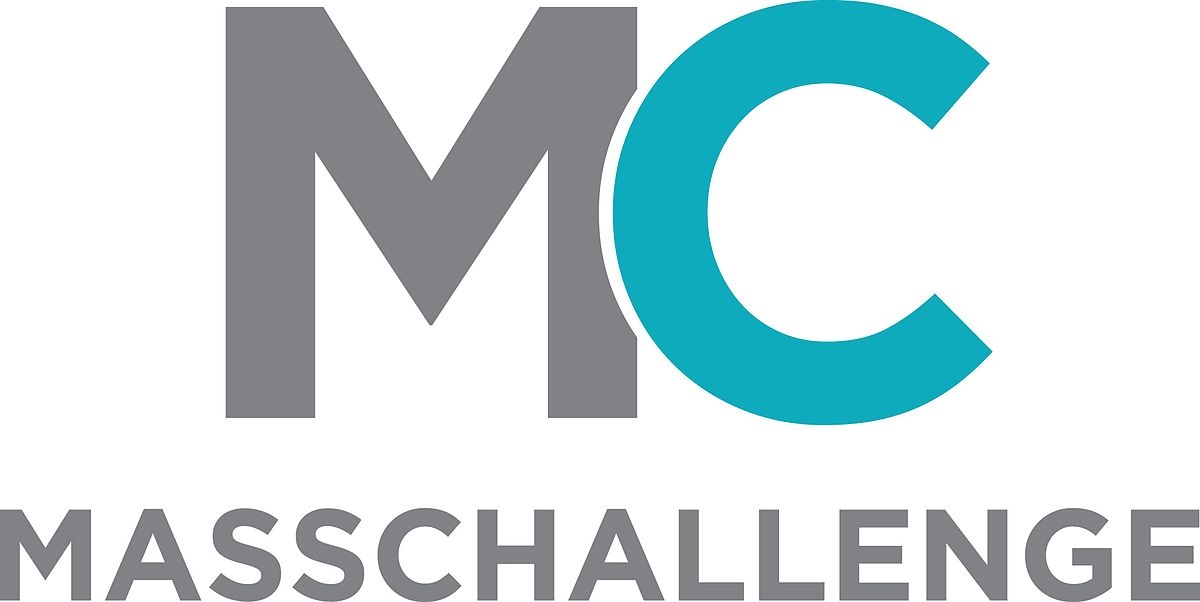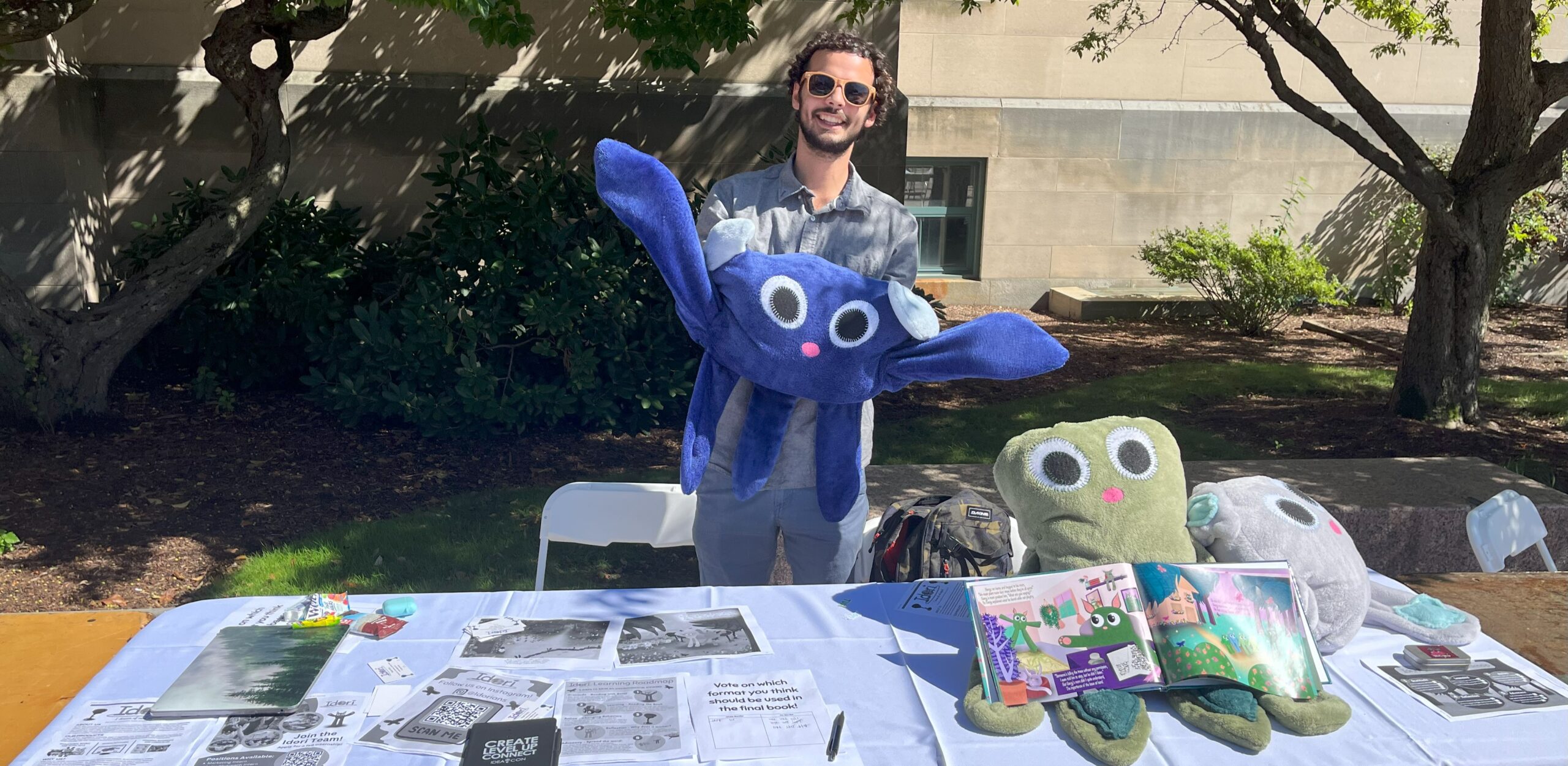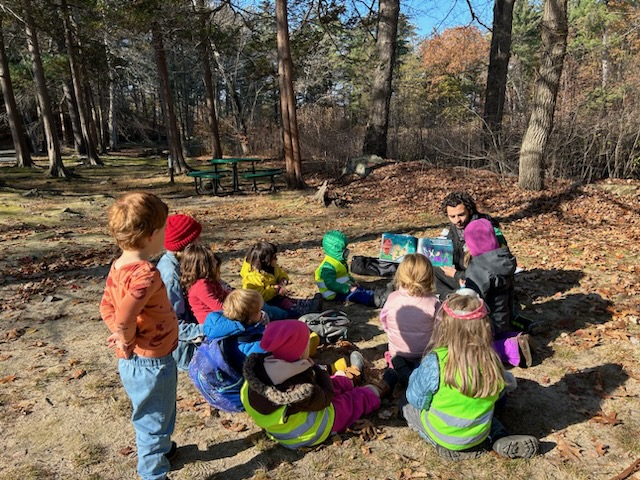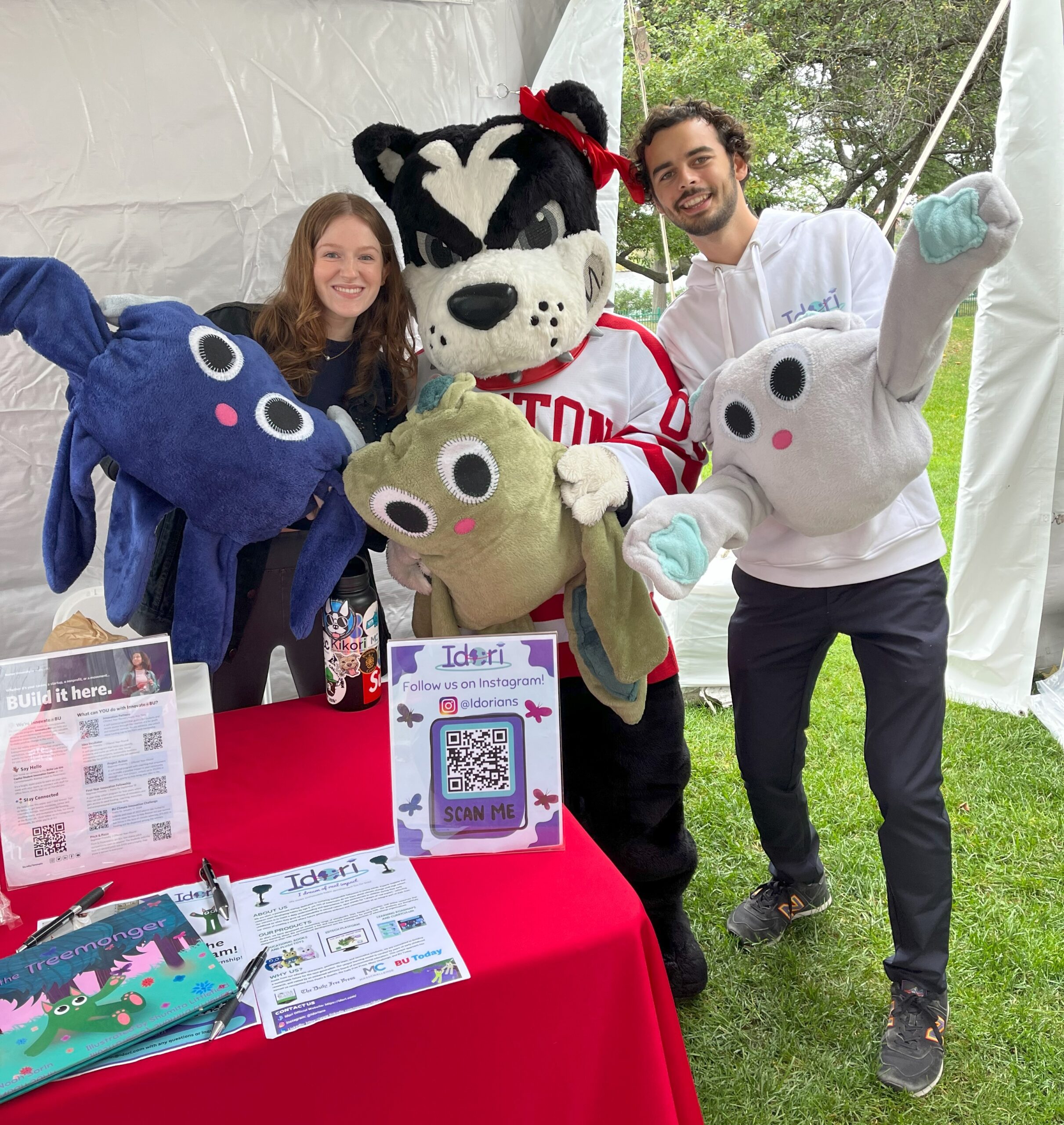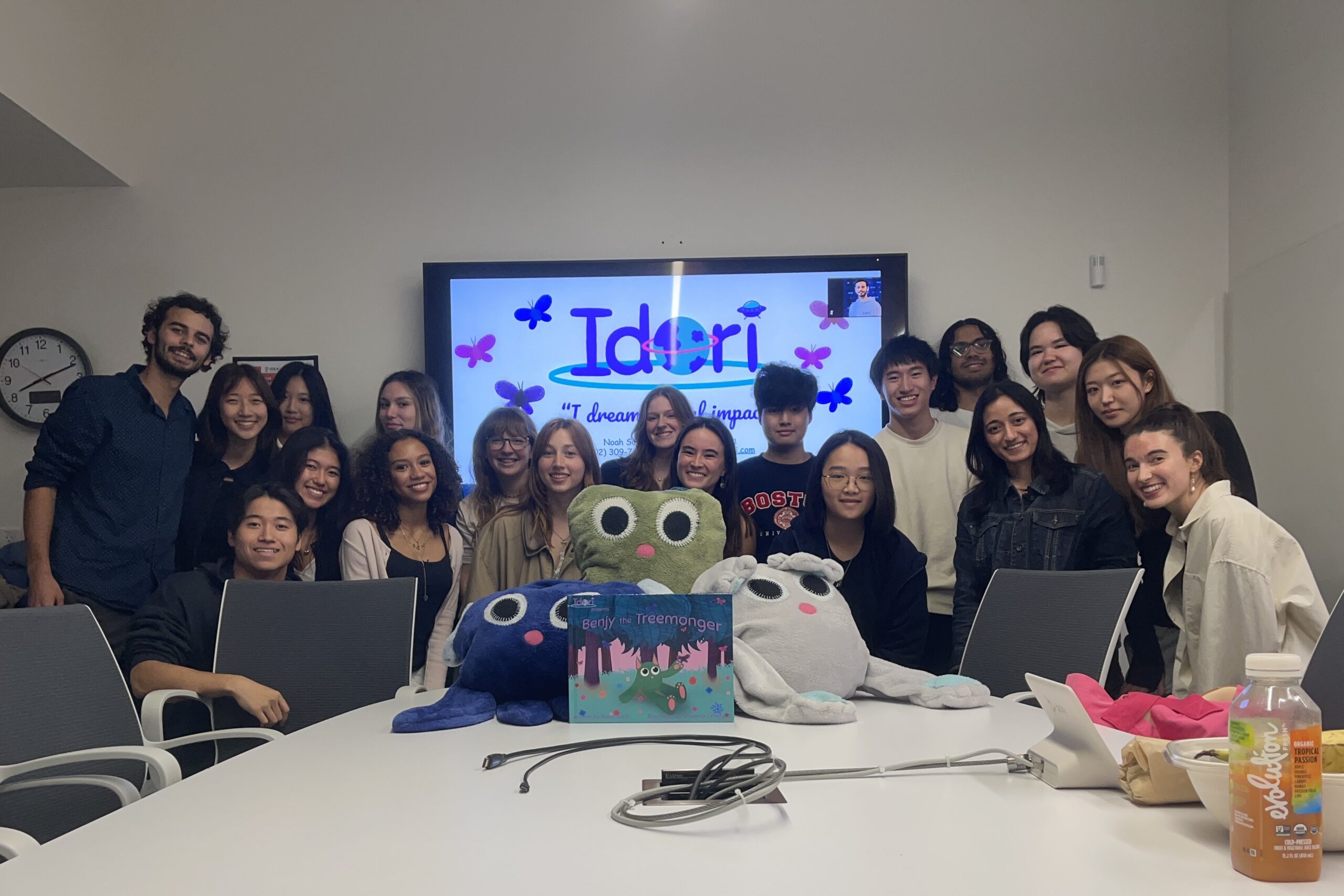What is Idori?
Q: Can you introduce yourself and tell us about Idori?
A: I’m Noah, the founder of Idori, which stands for ‘I dream of real impact’. We create educational resources aimed at teaching kids about sustainability and developing sustainable behaviors. Our products include illustration books, plush toys, and learning roadmaps that focus on issues like deforestation and climate change. We are also developing a curriculum and an edtech platform to offer both play-based and structured learning options for young kids.
Q: What inspired you to start Idori?
A: Growing up on a small farm in Northern Vermont, I spent a lot of time outdoors engaging in activities like hiking, camping, and kayaking. This deep connection with nature made me passionate about protecting the environment.
Moving to Boston, I realized that not everyone shares this perspective. I found that this often stems from a lack of early education on sustainability in a relatable and meaningful way. Research shows that people in the U.S. often don’t learn about climate change until their sophomore year of high school. However, critical habit-forming stages begin as early as nine years old. If we can educate children about sustainability and climate change at these early stages, we can foster lifelong environmentally conscious habits. That’s the motivation behind Idori’s fun, engaging resources like our books and stuffed animals. We’re also working towards a comprehensive ed-tech platform to further this mission.
Why MassChallenge?
Q: What drove you to join MassChallenge?
A: As a student founder, one of the biggest challenges is building connections. Typically, industry founders have a network with access to investors, stakeholders, mentors, and experts in areas like marketing and graphic design. Coming from Vermont, I had little exposure to the business world until I arrived at Boston University. MassChallenge stood out as a key player in the Boston entrepreneurship ecosystem, known for its mentorship, accelerator programs, and corporate partners. It’s also well-regarded within the BU community. After participating in BU’s Summer Accelerator Program, I spoke with a cohort member, Fatima, who had joined MassChallenge. Her positive experience and recommendation, along with the opportunity to have an office in Seaport, Boston, were significant motivators for me.
MassChallenge Application Process
Q: Can you briefly describe the application process for MassChallenge?
A: The process begins with a written application, answering questions like the pain point, target audience, proposed solution, biggest challenges, five-year forecast, financial projections, and including a pitch deck. After a month or so, applicants are informed if they’ve advanced to the next round, which involves a Zoom interview. This consists of a presentation and a Q&A session with judges. A few weeks later, you find out if you’re accepted into the program. My orientation took place in Dallas, Texas, and that’s where my journey with MassChallenge began.
Q: What do you think made your application and company stand out for MassChallenge?
A: From my discussion with one of the community managers, the key to standing out in MassChallenge lies in balancing the written and speaking aspects of the application. There’s a scoring rubric, and the top startups often shift dramatically between the initial application and the speaking round.
In my case, I believe my strong, opinionated, and emotionally driven speaking style made my pitches more compelling and engaging. This approach seems to have set me apart, especially compared to those who focused heavily on technical details.
MassChallenge’s Program Structure and Funding
Q: Can you describe the structure of the MassChallenge program?
A: The program is essentially hybrid. It starts with a three-day orientation in Dallas, which isn’t mandatory due to its national scope. The entire program offers online access, with certain activities available in person at locations like Houston, Boston, or their California office. The summer program includes LeanStack training based on the Lean Canvas startup model, weekly or bi-weekly classes, and group sessions in ‘pods’—mine was a social impact pod. We discussed industry-specific challenges and received guidance from experienced leaders.
There’s also a mentor matching program where we’re required to connect with at least two mentors and meet them multiple times. Additionally, ‘colliders’ offer formal pitch practice in front of mock judges for feedback. Throughout the summer, there were various skill-building workshops, in-person mixers, and sessions with representatives from companies like AWS and HubSpot, providing insights and potential service discounts.
Q: Is full-time commitment required for the MassChallenge program, or can you balance it with your company’s daily demands?
A: Initially, all LeanStack workshops were mandatory, but a month into the program, based on founder feedback, they made these optional. MassChallenge understands the importance of prioritizing our businesses. The goal is for the program to supplement our work, aiding in startup development without adding unnecessary stress or workload.
Q: Did MassChallenge provide any funding?
A: MassChallenge doesn’t directly provide funding to all participants. About 120 people enter the early stage program, and at the end, there’s an awards competition. The top six from each industry are selected for funding. In each industry, one wins $100,000, and the runners-up receive $10,000 each. The final pitches and awards are conducted over Zoom, culminating in the Resolve Conference in Boston. I didn’t advance to the final round this year, but I plan to try again next year.
Milestones Achieved and Challenges Faced
Q: Can you share a significant milestone achieved during the program?
A: My most significant milestone was generating my first sale. Having the support of an accelerator like MassChallenge constantly motivates you to work towards your next goal. While mentors don’t give direct instructions, their guidance in considering various aspects and strategies plays a crucial role in this achievement. It was through dedicated effort and applying the insights gained from the program that I managed to generate my first revenue.
Q: Did you face any challenges during the MassChallenge program?
A: I encountered a significant challenge. Just as I was about to launch my pre-order, the same weekend I flew to Dallas for the orientation, my manufacturer declared bankruptcy and ceased U.S. operations. This left me without a manufacturer right before a crucial launch. I spent the next month frantically contacting about a hundred manufacturers until I found a new one. While this issue wasn’t directly resolved through MassChallenge, my mentor did connect me with some potential manufacturers. The situation highlighted the reality of entrepreneurship: as a CEO, it’s my responsibility to address and solve such unexpected crises.
Current Status of Idori
Q: And how is your company doing now?
A: Currently, I’m focusing on raising funds for my company. Simultaneously, I’m in my second semester of senior year in undergrad, so balancing academics and startup demands is a priority. My goal is to successfully graduate while advancing my business.
Final Advice for Founders Considering MassChallenge
Q: Do you have any advice for founders considering applying to MassChallenge?
A: For those thinking about applying to MassChallenge, it’s crucial to focus on the impact you want to create. MassChallenge is an impact-driven accelerator, looking for companies aiming to make a significant change in the world. It’s important to think big. For instance, if you’re addressing a problem like sunburn prevention, don’t just think about adding umbrellas around a city; aim for a solution with global implications.
What worked for me was framing my presentation around a major issue — the climate crisis. I talked about the problem in global terms, like the millions of tons of plastic, deforestation, and carbon emissions. Then, I illustrated the potential impact of my company on a large scale, envisioning the change if we reached thousands or millions of customers. This approach is much more impactful than just focusing on small-scale achievements, like conducting local pilots. It’s about presenting a vision that resonates with the accelerator’s goals for global impact and change.
